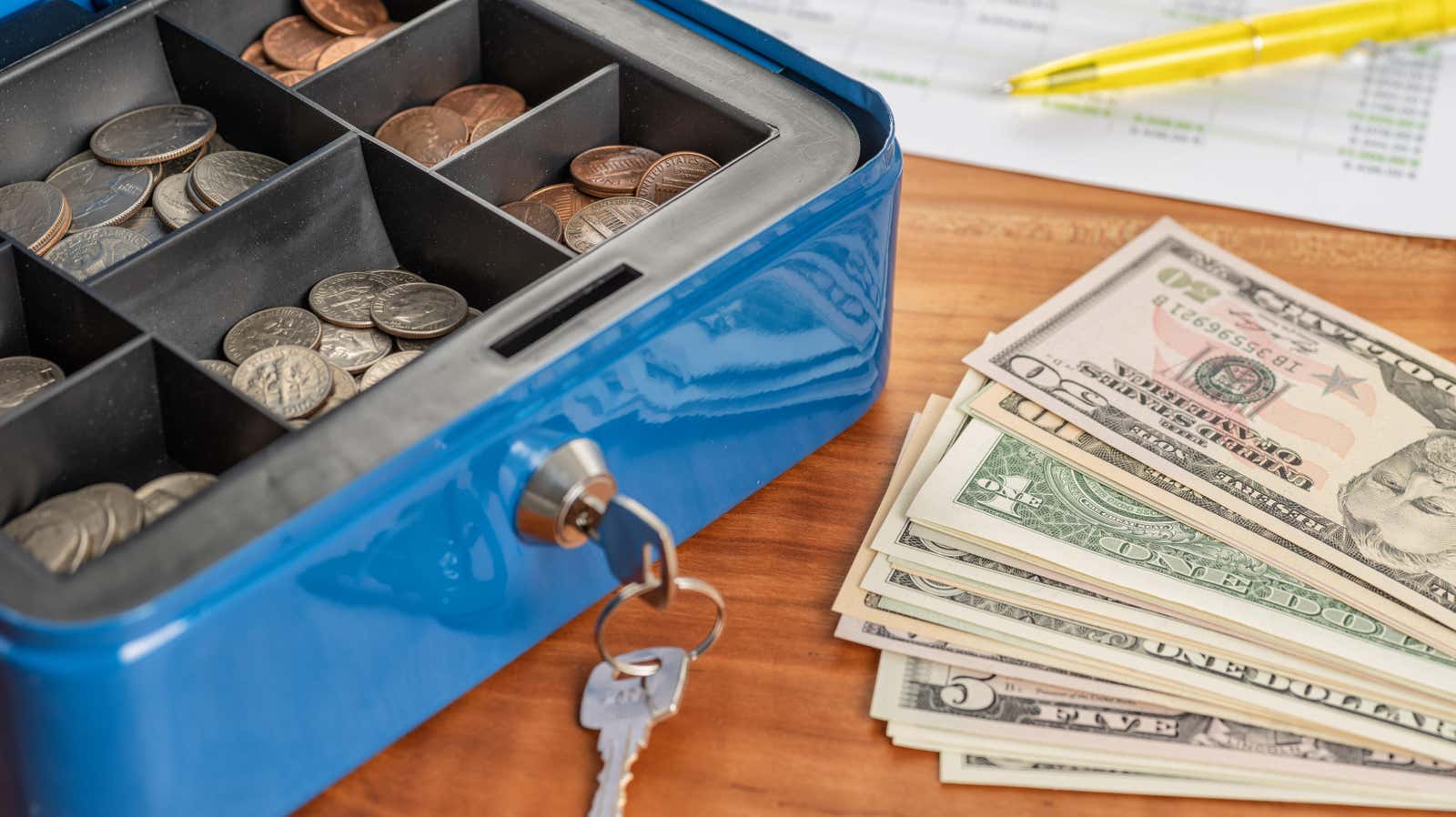Here’s How Much Emergency Cash You Should Keep at Home

In many places, cash is no longer king. While you can still live the cash-only lifestyle if you want to, few of us do. Some of us don’t carry cash at all, relying on our phones and credit cards, swiping through stores, and using apps like Venmo or the Cash App for personal transactions that once involved handing someone a wad of crumpled bills. .
Even when we talk about the need for an emergency fund , we are talking about money in the bank account, not money tucked under the mattress. Money in the bank will pay interest, it will be insured against robbery and will be available in some way no matter where you are.
But cash can still be useful. And in an emergency, you may even need cash. This is why you should definitely keep a modest amount of cash at home. But how much?
All you need is cash
It’s true that most day-to-day transactions no longer require cash, so keeping a stack of bills in your home safe or hidden away somewhere can seem like a waste of time. But there are several good reasons for this:
- It may be needed during a power outage. Natural disasters such as hurricanes often take out the power grid and it can take time for power to be restored. After Hurricane Sandy in 2012, it took almost two weeks for some areas to regain power, and Puerto Rico is still trying to restore power after a string of powerful storms. Outages not only make it difficult to charge your phone or other devices, they also prevent businesses from accepting digital payments and can even disrupt data networks. The end result is a temporary trip to the stone age, and having cash to buy things will serve you well.
- Cash is (mostly) accepted everywhere. Even if you can charge your phone and access the web, you may run into people who don’t use the same payment apps as you. After all, you won’t be able to transfer Venmo money to a shop owner or neighbor if they don’t have a Venmo account. And it’s going to be an emergency, so people won’t have the patience to download and set up a brand new app.
How much to hide
So having some cash on hand is a good idea, but don’t overdo it. Your general reserve fund should cover several months of expenses. When it comes to cash, it’s best to have enough so that you can pay for basic things within a week or so, like gas for your car and generators, groceries, necessary prescriptions, and maybe a night or two for emergency housing. such as a hotel or motel. room.
The exact amount you’ll need for these items will vary depending on the size of your family and their specific needs, but as a general rule, somewhere between $500 and $1,000 will be enough to deal with a temporary emergency, though even $200 can help. be useful. Moreover, it is probably overkill – it is better to keep money in a bank, where it will be insured and will bring interest.
You can work out a more specific number for yourself by listing the week’s bills for food and bottled water, medicines, and other essentials for your family, as well as paying for a night at a nearby hotel. Round up to the next $100 and that’s a good estimate of how much you should have on hand.
A few things to remember about your cash reserve:
- Shrinkage. The $500 you hid today will lose purchasing power over time. It’s a good idea to review your emergency cash reserves from time to time to make sure you have enough.
- Deterioration. Paper money has a lifespan . While money in circulation deteriorates mainly due to its handling, cash in an envelope in your home office can still be damaged. Keep your cash in a safe place where it won’t get wet, burned, or cut into snowflakes by toddlers. You should also consider exchanging for new bills every few years.
- Don’t get into them. When you know there is cash in the house, you might be tempted to take it when it’s convenient—for tips, to pay off small debts to neighbors, or for small purchases that are inconvenient to pay with credit. map. Before you know it, your emergency cash will run out – and that’s when the emergency hits you.